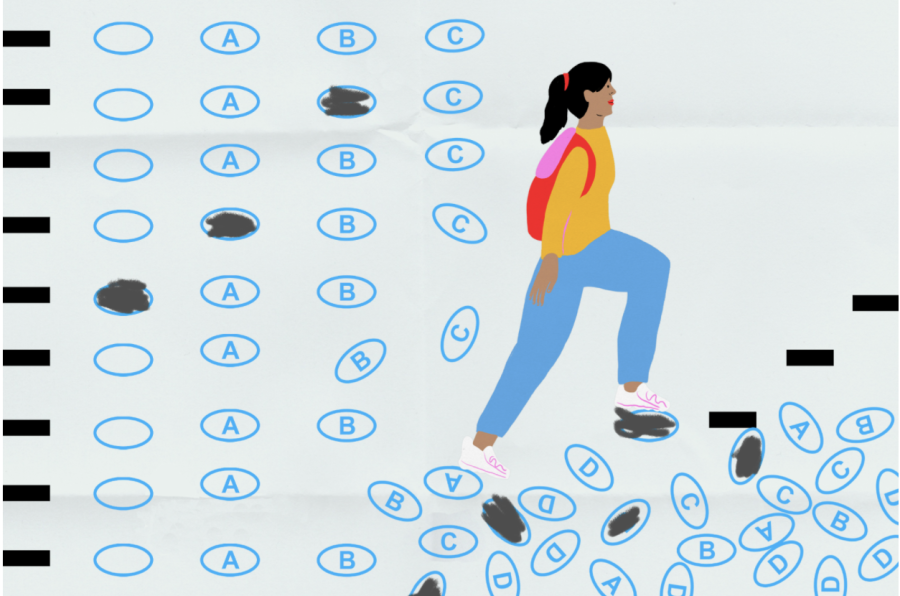How are Hastings Students Impacted by the New Alterations to the SAT?
April 26, 2022
Earlier in the year, we surveyed students about their approach to the SATs and ACTs. In February 2022, however, an announcement revealed that the SAT will be changing in the next few years. Starting in 2023, the test will be fully digital, there will be no non-calculator math section, the test will be an hour shorter, and scores will be released much sooner than they used to.
Camilla Mischka “never thought that the SAT was important,” and with the new changes impacting the class of 2025, she added that “It’s annoying we do not get this opportunity, but it’s another year to prove why we need to make the change. [The change] disadvantages our grade, but it is still a good thing to hear for the next generations.”
Many older Hastings students, who have sat through the current version of the test, expressed frustrated with the change but were also happy that the test might be more approachable for students in the lower grades.
It makes the test “less of a big deal” and “reduces a tremendous amount of stress if the students decide to take the SAT over the ACT,” said junior, Ione Shih.
Of the five freshmen I interviewed, none was aware of the the SAT alterations. Additionally, each student was initially shocked and then excited by the news, except for one student, Anelise Chen, who felt bad that they were the “first to experience these changes.” Many students in Hastings take the ACT as well as the SAT, and when freshmen were surveyed to see which test they were going to take, all of them said they would be more likely take the SAT due to the new alterations.
Even though the new online test may seem nicer on the surface, there are some downsides. English teacher Mr. Ross Abrams, who has done some part-time teaching for SAT students, mentioned that in Connecticut, all juniors take the SAT, but this year it was slightly different. Many districts allowed students to take the test online. This preview of what the testing might look like in 2024 wasn’t all positive. The reading section was shorter and denser, and Mr. Abrams added that working “off of a computer screen may make certain things more difficult” than expected. For most students taking the test currently, he “advise[s] students to use their pencils to mark up questions and answer choices,” but this will no longer be possible for an online test. A 2019 analysis by a University of North Dakota professor also found that students of all ages retain more information on paper than on a computer. Even if the math section may be easier and shorter on the digital SAT, students will be “confronted with a whole lot of “’untouchable’ text on a screen” for the reading section.
The changes to the SAT seem pretty great on the surface, but there are some challenges that students might face starting in 2024. All in all, though, the alterations made seem pretty positive and students in Hastings will hopefully thrive.


















